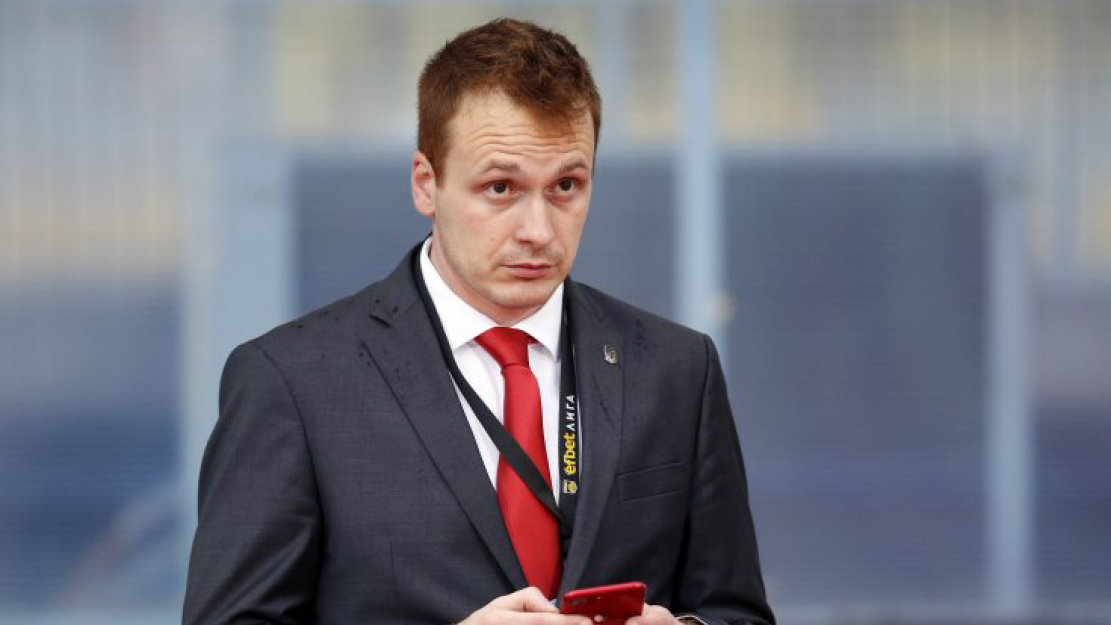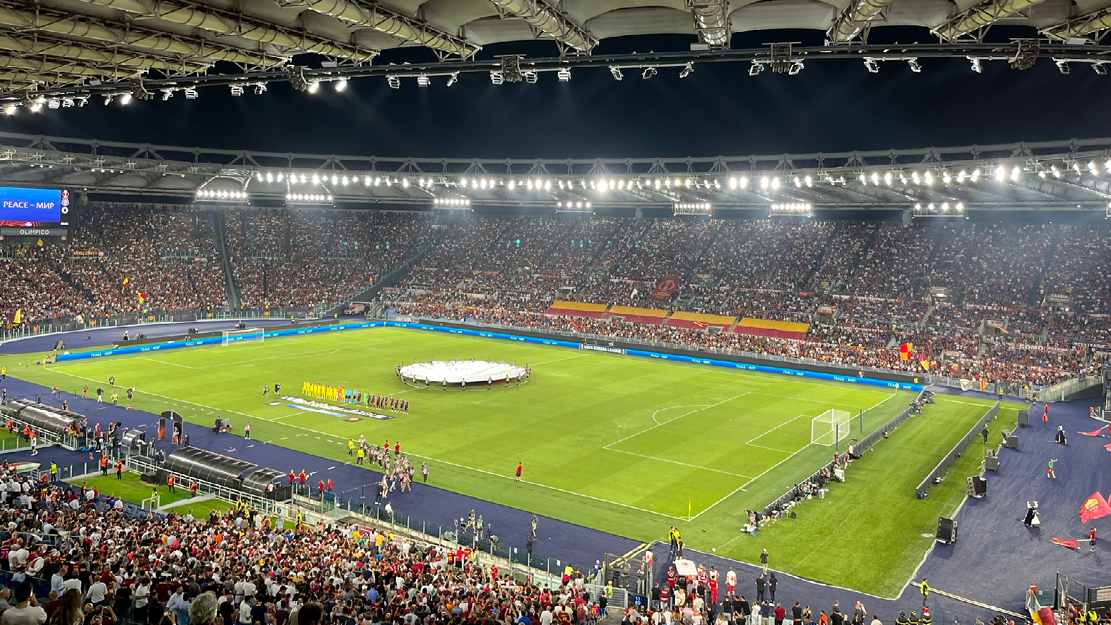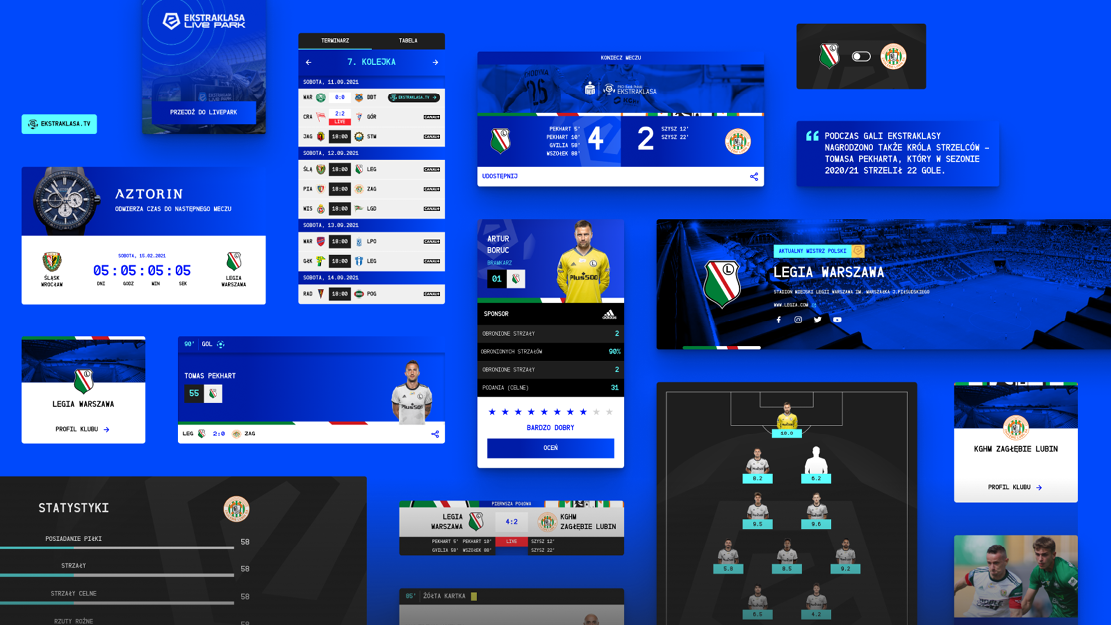Only founded 5,5 years ago as the successor of the bankrupt PFC CSKA Sofia, CSKA 1948 managed to climb from the fourth to the first tier of Bulgarian football. With a different approach and focus on building a brand, the new club wants to establish itself in the top tier and fight for the European competition. FBIN spoke to Dobrin Gionov, since January 2017 CEO of CSKA 1948.
You are a very young club, founded in 2016. Can you tell us the story of CSKA 1948?
Dobrin Gionov: This is probably the most frequent question that I receive among with the one of why there are two teams named CSKA in Sofia – CSKA 1948 and CSKA Sofia.
In 2016 PFC CSKA, the most successful football team in Bulgaria, went bankrupt. The owner of the club at that time owned one more club, namely Litex- Lovech. In order to avoid the payment of debt as big as 15-20 million Euro, he took the decision to relocate Litex Lovech to Sofia, change the name to CSKA Sofia along with the colors of the official equipment and announced that this is the “new” CSKA. However, this was still the same Litex Lovech, only playing at the origin stadium of PFC CSKA and competing directly in First Division.
The same summer, a group of supporters of PFC CSKA including fans, legends of the team, coaches, players from the academy of the team and so on, gathered at the Military Club in Sofia (the place, where the club was officially established back in 1948, 5th May) and founded a new team named FC CSKA 1948. As a novice, the team FC CSKA 1948 started the season 2016-2017 from the lowest level of Bulgarian football – 4th Division and in four years managed to enter into the First division passing through all levels of Bulgarian football.
You are playing the second year in the first tier. How big is the club, how many people are working for it in the not sports-related part?
I would consider CSKA 1948 as one of the most innovative sports organisations in Bulgaria. The total number of employees including all units of the club is90.This might seem a big number, however, we strongly believe in the professionalism of every single person that works for the team. We try to combine the mind and experience of well-established names in the industry together with the innovation that comes with the younger generation of professionals. When it comes to the administration, marketing and sales departments, I would say that around 15 people are working in those units. Moreover, we also rely on “freelancers” and subcontractors for match-days and the following preparation.
What is an average yearly revenue of CSKA 1984 and how is it divided into the different areas, like sponsorship, matchday, TV rights, etc.?
The revenue of our team is between 2,5 and 3 million Euro, which according to my knowledge, positions us among the top 5 teams in the country when it comes to budget. What is more, in my opinion, our revenue is close to the average revenue of teams in first divisions in Central and Eastern European championships.
Regarding the different areas, I don’t have the exact numbers right now, but sponsorship and merchandising are a little more than 60%, TV rights are between 10% and 15%. Because of the Covid pandemic, the match-day revenue has not been high during the past two years.
When making an analysis of a club with our dimensions, the main objectives are participation in UEFA European tournaments and realization of outgoing transfers. Based on these objectives, a strategy and a transfer policy should be developed. For example, Dinamo Zagreb, for the period 2017-2021 spent 26 million Euro for income transfers and made 118 million Euro from outgoing transfers.
How developed is the sponsorship market in Bulgaria?
Unfortunately, the sponsorship market in Bulgaria is not very well developed. In my opinion this comes from the fact, that the product “Bulgarian football” it is not well recognized. All clubs from the first division should work hard towards changing this perception.
Matchday revenue is not a big part – how many people are watching your home games on average? What’s the average number in the league and how did it develop over the past years – leaving the pandemic aside?
As a young club, we have been on a constant development path searching for the best solutions for our team and for our fans. Naturally, some decisions have been accepted well and others not that much, which often affects the enthusiasm of our fans to come or watch our matches.
Even if we leave aside the pandemic, which has had an enormous impact on any sport, the uncertainty, and constant changes it brings, do not allow us to make stable conclusions and follow tendencies.
When speaking about the league in general, figures are not impressive, I would even say that they have been decreasing during the past years. There are several reasons for this negative trend in my opinion and those include the fact that most of the stadiums are old and not maintained, the low level of football as well as too many hooligan scenes.
Also, TV money does not play a big role. What is the situation regarding the TV rights right now?
In general, broadcasting rights play an important role in football. For the Bulgarian market, statistics show that Bulgarian the first division is more watched and followed than the English Premier League. Even though the interest is higher, the television pays less for it when compared to the EPL. In my personal opinion, the federation should have strived for better conditions. Now this leads me to another very important topic. The federation and the professional league should be divided.
You said that dividing the FA and the league into two separate entities would be the next big step for the Bulgarian football. Why do you think so?
Because the professional clubs are the face of Bulgarian football. In Bulgaria we have 600 clubs, but only 14 are in first division. The professional clubs should gather and work together to increase the value of the product “Bulgarian football”. We should create a better communication with the government, municipalities, sponsors and television in order to make better agreements for the clubs.
The federation should concentrate on the national teams, further development of the young sector along with women’s football, futsal and of course the base – grassroots.
This is Part 1 of the interview with Dobrin Gionov. You can find part 2 here.






